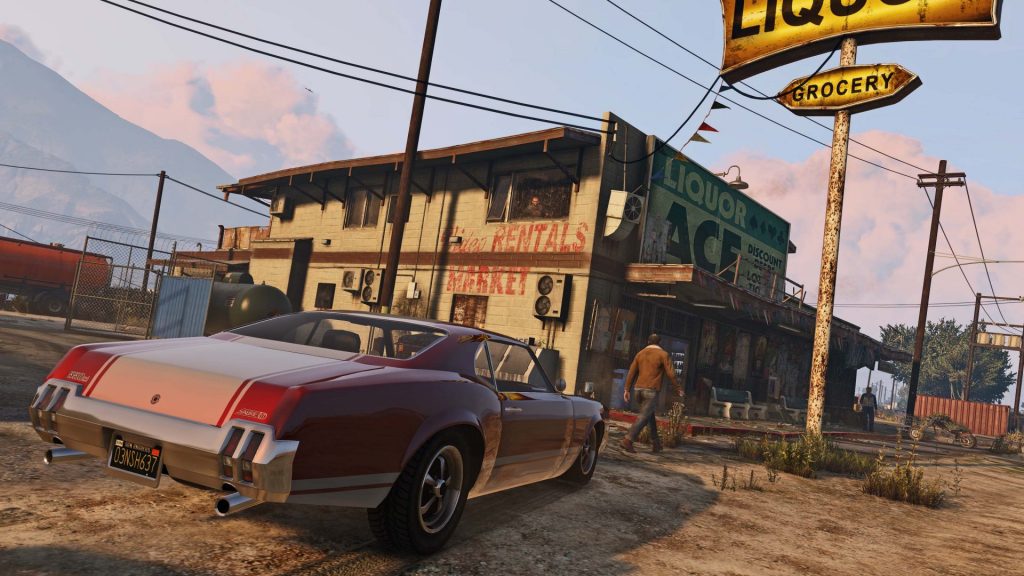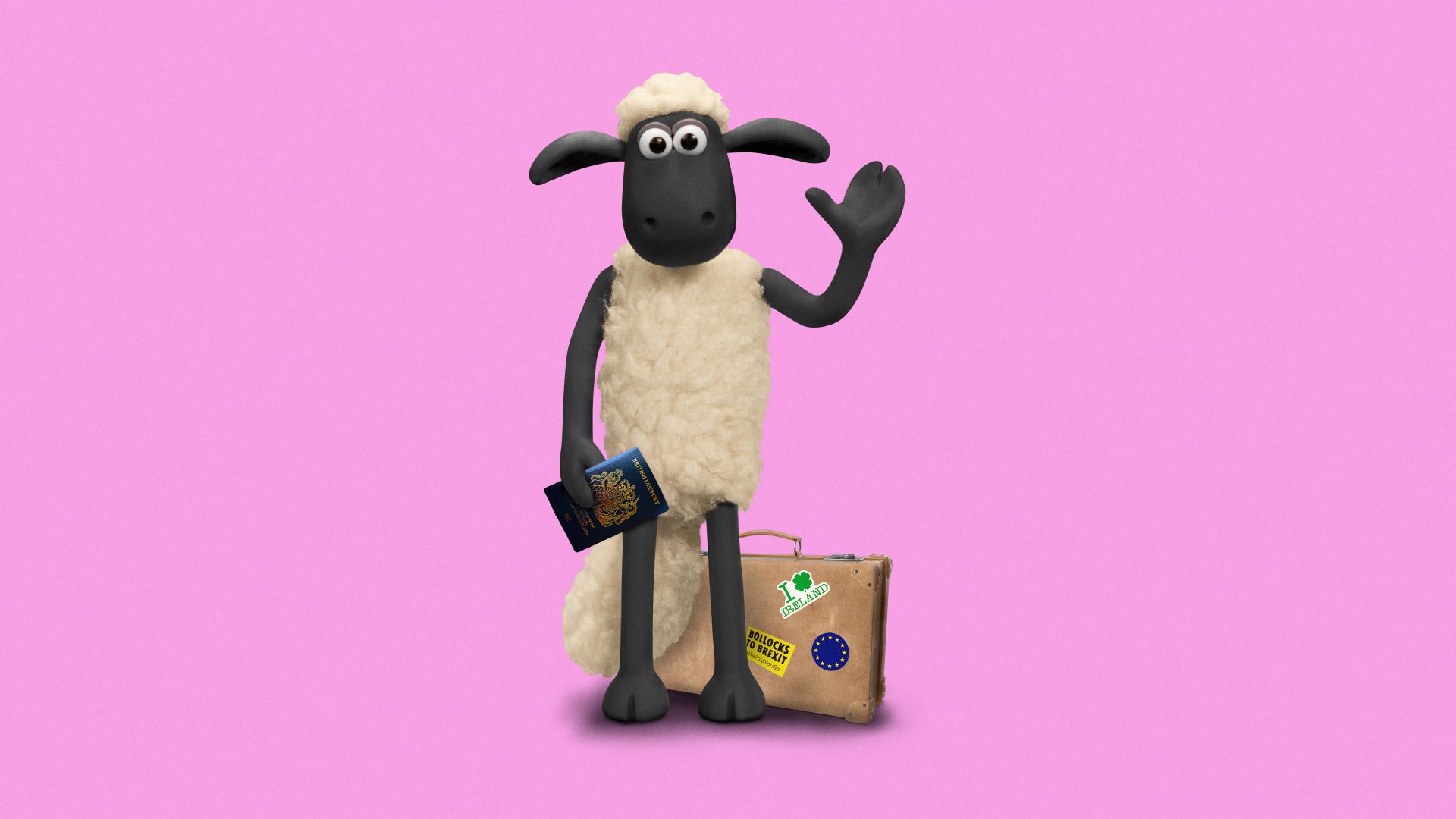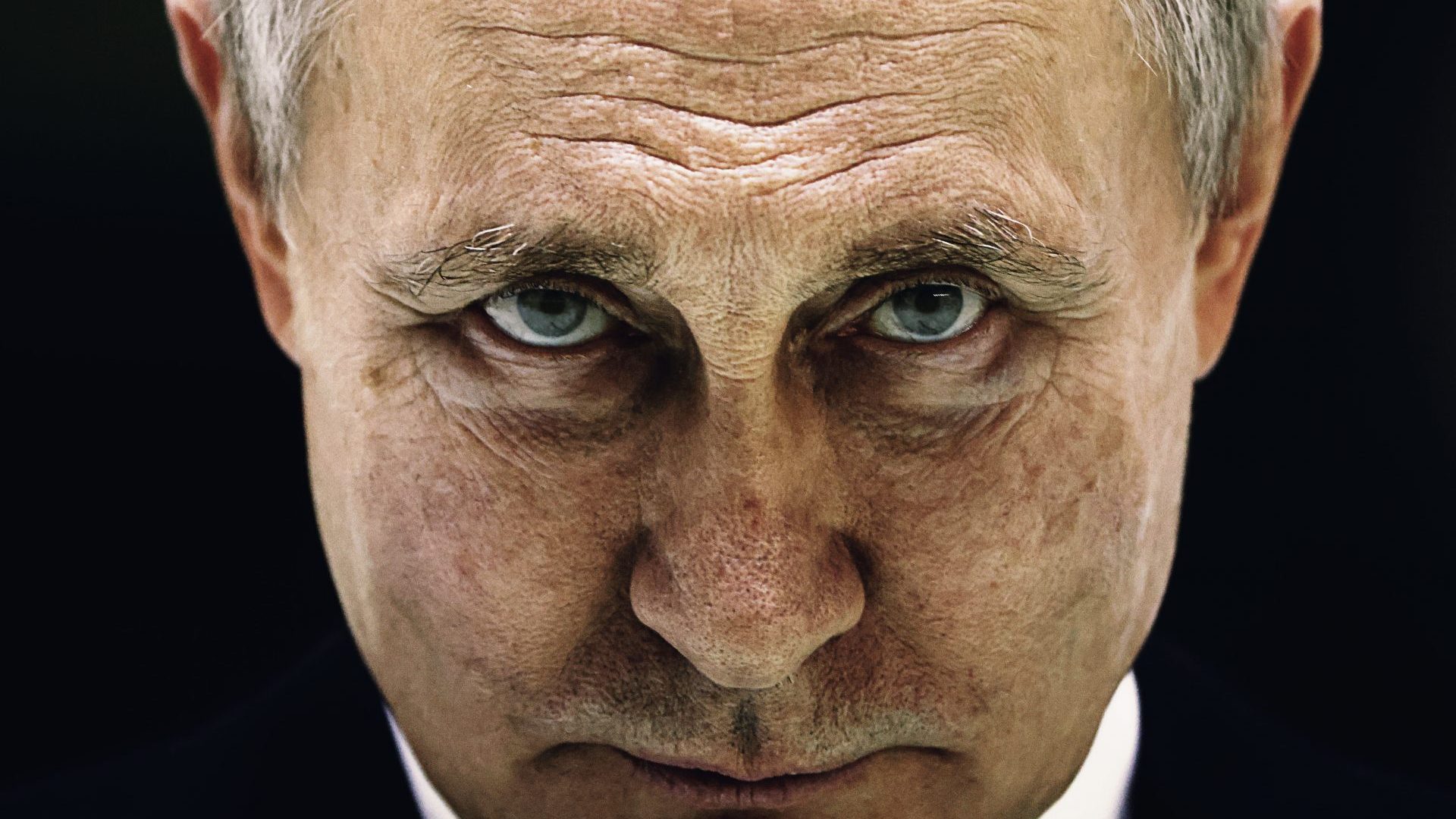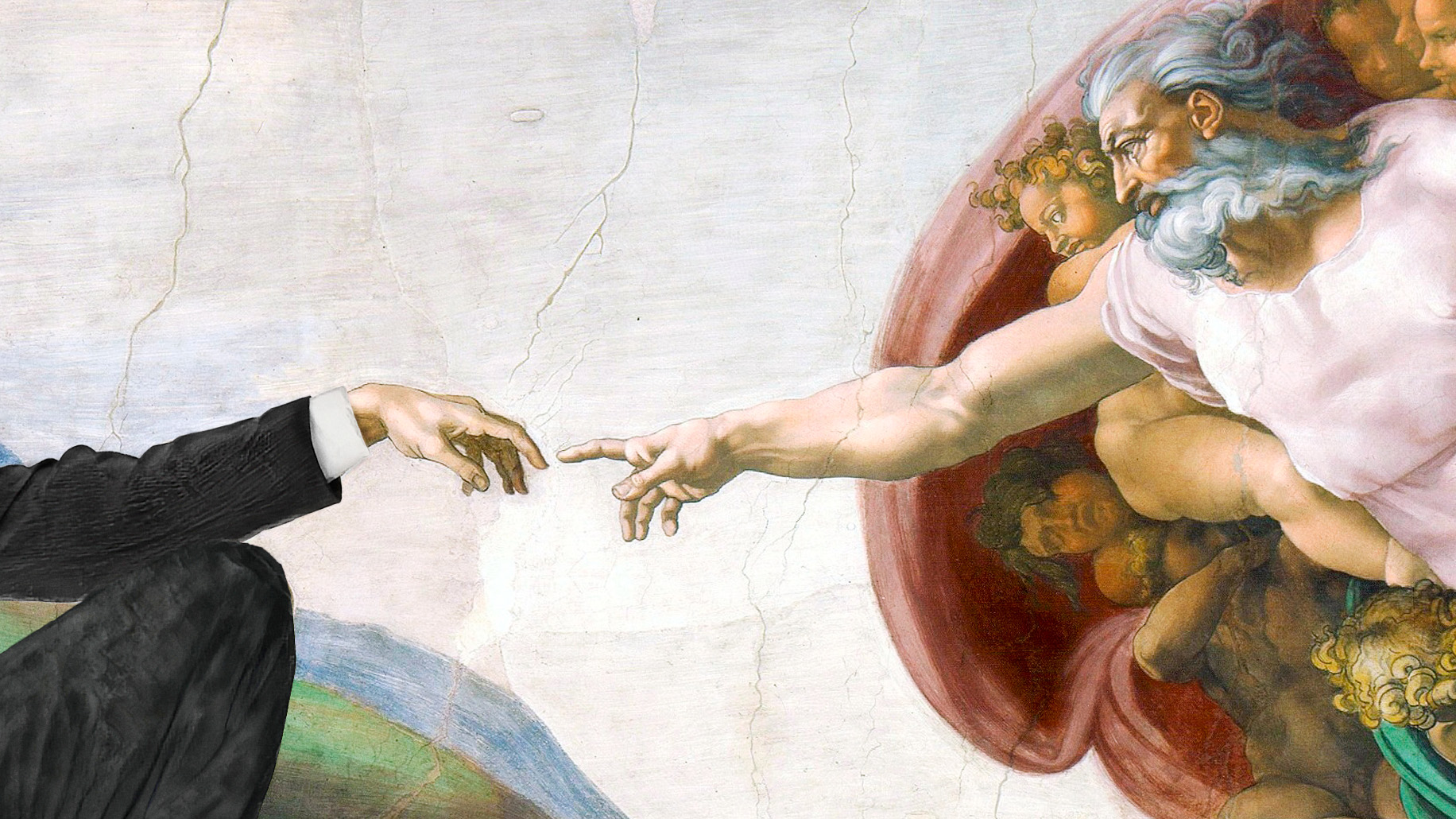I once had a French teacher who loved Aardman Animations films so much she had a Shaun the Sheep backpack. Her English was excellent, but I still had to explain to her that Shaun the sheep was called Shaun because he had been shorn.
Her love of Shaun made her, like millions of other customers around the world, a willing and keen purchaser of UK exports. Everything from merchandise for animated films, to tickets for West End shows, touring orchestras and music sales – British culture and arts are a huge success story.
But now Sean Clarke, the managing director of Aardman Animations, says Brexit means he is struggling with tougher competition from abroad. His foreign rivals enjoy better tax breaks than Aardman gets in the UK, and he also has to face the perennial Brexit problem of skills shortages. Now he may have to move production overseas, as he told the Guardian: “Children’s television is suffering and what’s produced in this country will go off the edge of a cliff in the next couple of years, unless something is done… The ideas will still be conceived here, but they’ll be made elsewhere.”
It is not just the animated film industry that is wrestling with Brexit, but movies of all kinds, music (from rap to Rachmaninov), live theatre, dance, audio books, and video games. The rest of the world loves British cultural exports, but Brexit makes it far harder to sell them.
There are 2,200 games firms in the UK alone, supporting 73,300 jobs in an industry that is worth £7bn a year to the economy. The Musicians’ Union calculates that music exports are worth some £2.5bn, tens of millions of tourists visit the UK and spend their money on trips to the theatre, ballet, and opera – that also counts as exports. The government itself calculates that the creative industries contribute £116bn to the UK or, to put it another way, they make up 6% of the entire British economy.
Yet the creative industry is one of the worst hit by Brexit. It is beset by a sea of troubles and confronts a government that seems totally indifferent to its problems. Still recovering from the devastating effects of Covid, the industry finds itself facing red tape and extra costs that inhibit exports. It is unable to attract the skilled workers it needs to expand, facing new European competition. Musicians are unable to tour because of added hidden costs.
The first major problem for the industry is that leaving the EU means leaving all the schemes through which the EU encouraged and supported the arts. The EU’s main programme is called Creative Europe, and its funding has been increased by 66% to €2.44bn (£2.2bn). If Brexit had not happened and the UK arts had won the same share of EU funds as it did last time, the industry would have got another £163m.
The British government has, of course, promised to make up for any shortfall in funding caused by Brexit, as it did for every other industry; and like almost all of them, the creative industries are still waiting for that money. So far, the Conservative government has provided £7m.
The government has also failed to keep up with the tax breaks offered abroad to film-makers and especially animated film-makers. They could move overseas and get tax breaks of between 37% and 50%, compared with 25% in the UK.
While animation is mainly used for TV and film, the same problems are felt by another British triumph, the video gaming industry. Brexit has choked off the flow of new talent. It used to be able to recruit fairly effortlessly from across Europe, but now it is worried that talented Europeans are no longer applying to work in the UK. People are put off by the onerous visa application process. The UK itself is still not producing the very specific talents the industry needs.
Colin Macdonald is director of Games Jobs Live, a platform for the industry, and he previously ran Realtime Worlds, the Dundee-based games studio. They employed around 300 people, about a third from the EU. But now, he says: “[The industry is] not getting nearly as many people interested in moving over. I think it’s partly just the mindset, that they’re not by default entitled to work in the UK, that there is a process to go through. So, it’s more difficult for the companies. I think it’s sort of a general feeling of whether they feel welcomed, in the widest sense.”
It is, says Macdonald, a “huge problem for the industry,” as he explains. “It’s a fast-growing industry, so we’ve always struggled. I think at peak in June [2022] we had 2,800 open jobs, and most of those are senior positions. That’s a lot of jobs, that’s a lot of lost productivity that the industry just isn’t able to hire for.”
Jo Twist is the chief executive of UKIE, the game industry’s trade body. She says the skills shortage in the UK makes it necessary to import talent, but that “there is more red
tape for companies, and it does cause delays if there is red tape. A lot of the companies don’t necessarily have the expertise within them if they are a micro-SME, if they’re a studio of three, four, five people, sometimes that can be a barrier. And we don’t want to see those barriers increasing, we’d rather see those barriers reduce.”
Unfortunately, Brexit seems to be good at putting up barriers. Brexit red tape means that bringing in skilled workers the UK economy desperately needs is more difficult, and it also means that exporting artistic success is harder and more expensive.
The creative industries have found that the cost of actually touring the EU to sell products has risen massively. The UK Trade and Business Commission (UKTBC), which was set up to explore ways of making cross-border business smoother and easier, heard from the creative industries just last month.

David Furnish, head of Elton John’s Rocket Entertainment Group, told the UKTBC that issues with visas and customs checks are hampering the ability of British artists to grow their reputation at home and abroad. He explained how many of the UK’s most successful acts, including Ed Sheeran and Elton John, gained invaluable experience and won fans touring Europe early in their careers, something it is now increasingly expensive and difficult for young artists to do.
As he told the commission: “In the past, a young artist could load up a van of gear, jump in the van, go across to Europe, and do all the performing that they wanted. Now they face a landscape of complicated carnets (lists of belongings), additional costs associated with carnets, issues in relation to cabotage and trucking, which makes things increasingly difficult for them… For a young, up-and-coming generation of artists it’s a roadblock.”
Which is a pretty good description of Brexit: a roadblock, erected by our own government.
Representatives of the theatre sector told the commission almost exactly the same thing – a seamless process was now bogged down with red tape and added costs, meaning many theatrical tours are just not happening any more.
Musicians, orchestras, theatres and exhibitors now have to fill in carnets, an expensive process that means listing and valuing everything they are taking abroad, from cellos to costumes, and then have those carnets checked on leaving the country, and again when they return, to make sure they have not sold or bought anything while abroad.
Road haulage companies in the UK find it next to impossible to transport touring musicians or shows, and there are now strict rules on how many stops hauliers can make in the EU without first returning to the UK, a ruinously expensive waste of time and money. This means British haulage companies taking UK acts on European tours either have to set up EU subsidiaries – or lose the contract and the money to a firm based on the continent.
The consequences are clear – there has been a 45% drop in the number of British musicians playing at European festivals.

You might not think there are many links between touring orchestras, the TV series Shaun the Sheep, Elton John and the series of Grand Theft Auto action-adventure games, but you don’t have to be a contestant on Only Connect to find them.
Barriers placed in the way of talent, trade and touring hurt, and they hurt an industry in which the UK holds huge natural advantages.
But the arts and creative industries are also far more than just another sector of the UK’s economy. The influence, image and reputation of this country owes a massive amount to its pre-eminence in the arts.
Every time Judi Dench and Colin Firth win an Oscar, every British play that transfers to Broadway, every West End show with a queue of tourists outside, every concert tour and TV show that makes it in France or Sweden, is not just an export. It all enhances the UK’s brand. In short: Cool Britannia was a success; Global Britain isn’t.




